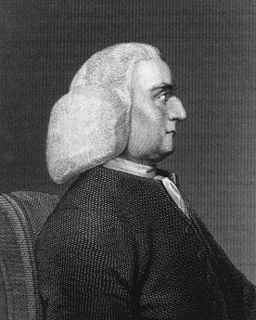A Quote by Alexander Pope
O happiness! our being's end and aim!
Good, pleasure, ease, content! whate'er thy name:
That something still which prompts the eternal sigh,
For which we bear to live, or dare to die.
Related Quotes
If life is to be fully human it must serve some end which seems, in some sense, outside human life, some end which is impersonal and above mankind, such as God or truth or beauty. Those who best promote life do not have life for their purpose. They aim rather at what seems like a gradual incarnation, a bringing into our human existence of something eternal, something that appears to imagination to live in a heaven remote from strife and failure and the devouring jaws of Time.
At the heart of our desires is eternal happiness without the slightest hint of misery. You could say that we are pleasure seekers; however, seeking pleasure from the objects of our five senses produces fleeting moments of pleasure whereas, pleasure of one's self, a soul, is eternal and ever-increasing pleasure.
Be sure the safest rule is that we should not dare to live in any scene in which we dare not die. But, once realise what the true object is in life ? that it is not pleasure, not knowledge, not even fame itself, 'that last infirmity of noble minds' ? but that it is the development of character, the rising to a higher, nobler, purer standard, the building-up of the perfect Man ? and then, so long as we feel that this is going on, and will (we trust) go on for evermore, death has for us no terror; it is not a shadow, but a light; not an end, but a beginning!
Reviving Spring, a toast to thy fresh lips! Thy blush is music, and e'en heaven lurks In thy thick perfumed hair that hangs about Thy flowered shoulders like enchanted rain; Thy sigh is song and thy soft breath a balm, Dispelling death -- soft loosing his cold grip, Unravelling darkness in the heart of pain, As o'er dank waters rings the laugh of dawn.
Pleasure is not the goal of man, but knowledge. Pleasure and happiness comes to an end. It is a mistake to suppose that pleasure is the goal. The cause of all the miseries we have in the world is that men foolishly think pleasure to be the ideal to strive for. After a time man finds that it is not happiness, but knowledge, towards which he is going, and that both pleasure and pain are great teachers.
Lenten practices of giving up pleasures are good reminders that the purpose of life is not pleasure. The purpose of life is to attain to perfect life, all truth and undying ecstatic love - which is the definition of God. In pursuing that goal we find happiness. Pleasure is not the purpose of anything; pleasure is a by-product resulting from doing something that is good. One of the best ways to get happiness and pleasure out of life is to ask ourselves, 'How can I please God?' and, 'Why am I not better?' It is the pleasure-seeker who is bored, for all pleasures diminish with repetition.




































